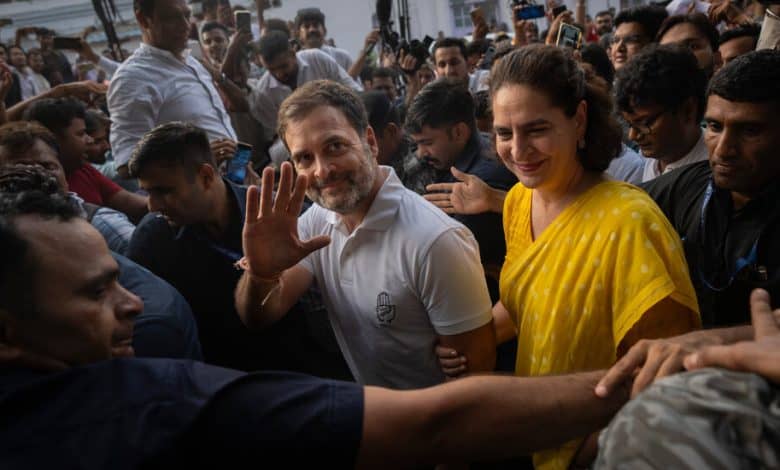Rahul Gandhi, Long on the Ropes, Looks Set for an Unexpected Comeback

Just last year, Rahul Gandhi and the once-powerful party he led, the Indian National Congress, seemed to be on the ropes and little threat to Prime Minister Narendra Modi’s consolidation of political power.
Congress had not been a competitive factor in national elections in years, winning fewer and fewer votes each time Mr. Modi’s Bharatiya Janata Party was elected. And Mr. Gandhi himself had been convicted on a slander charge and barred from holding a seat in Parliament.
But on Tuesday, Mr. Gandhi and a broad opposition coalition led by his Congress party registered a far stronger showing than expected in India’s elections, setting the stage for an unlikely comeback.
“He has finally arrived,” said Rasheed Kidwai, a fellow at the Observer Research Foundation, a think tank in New Delhi. “This time he has improved his vote share by at least 17 million votes, which is very substantial.”
On Wednesday, Mr. Modi’s party announced that it had reached an agreement to form a governing coalition, including two parties that do not necessarily share its vision. Congress won 99 seats in the 543-seat Parliament, a gain of 47 seats, and the alliance of which it is the leading part won a total of 232.
Congress and its alliance of over two dozen political groups have presented the results as a “moral victory” over a B.J.P. government that they say was trying to change the country’s Constitution and have portrayed as anathema to India’s identity as a multifaith and secular country.
